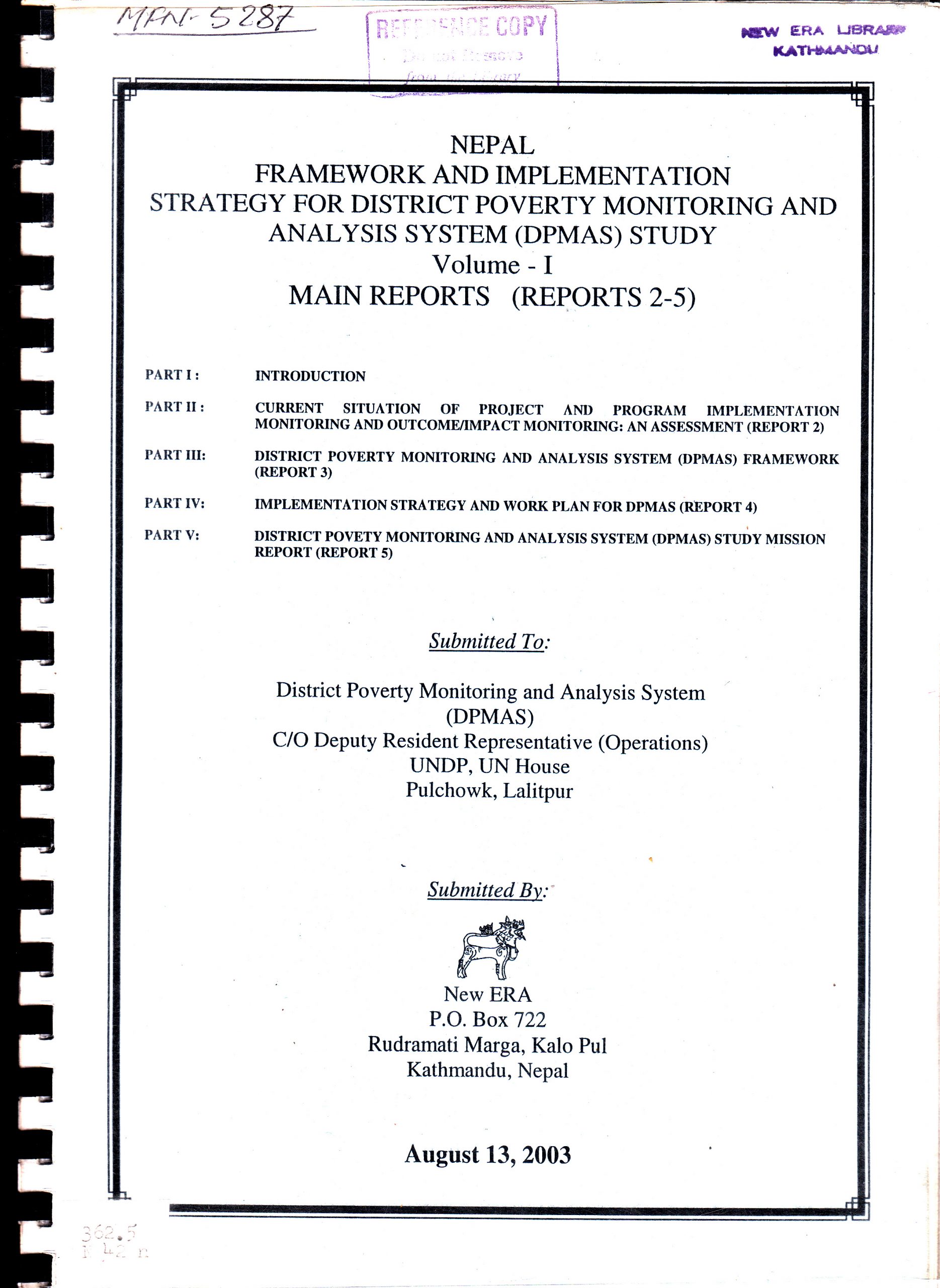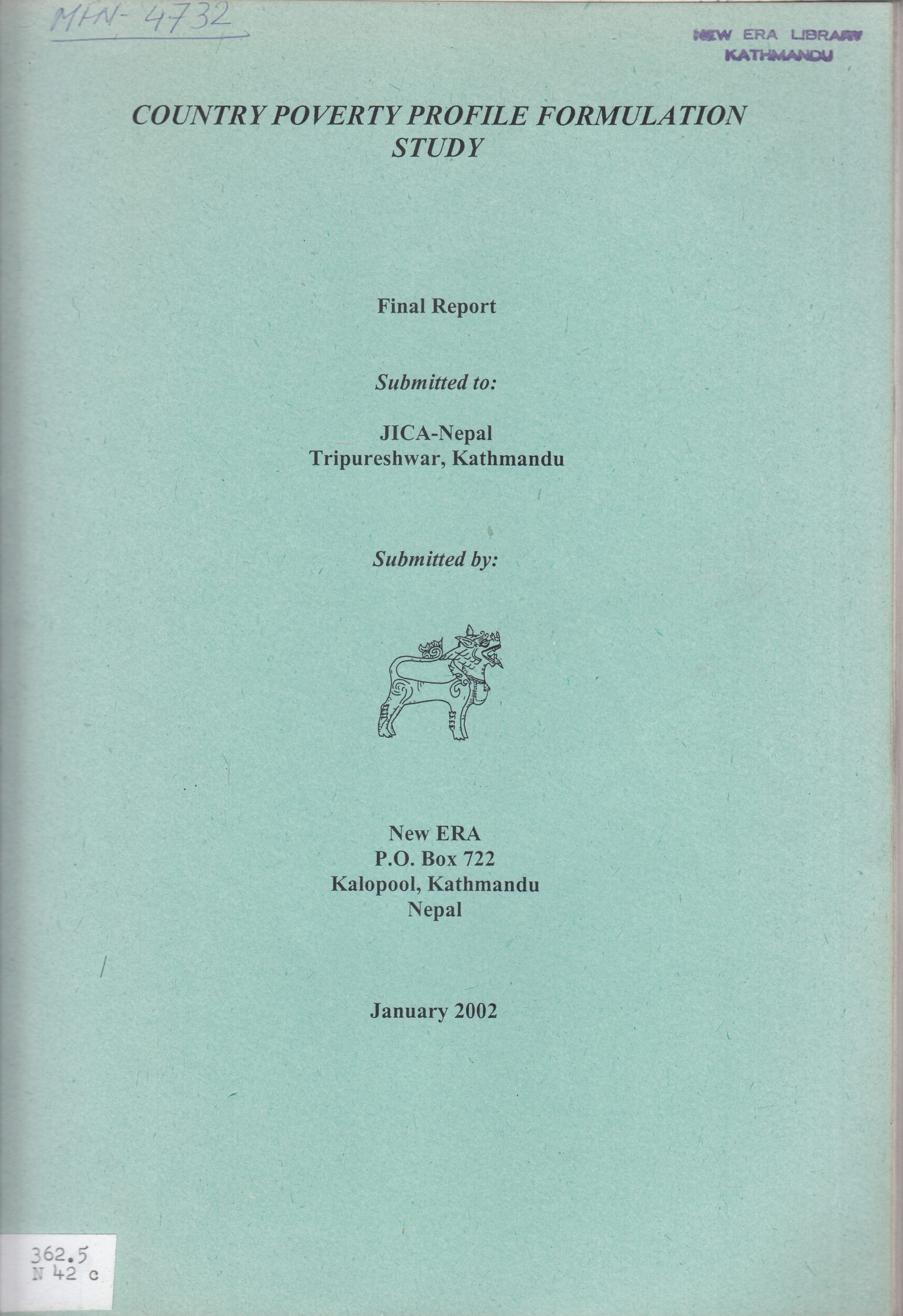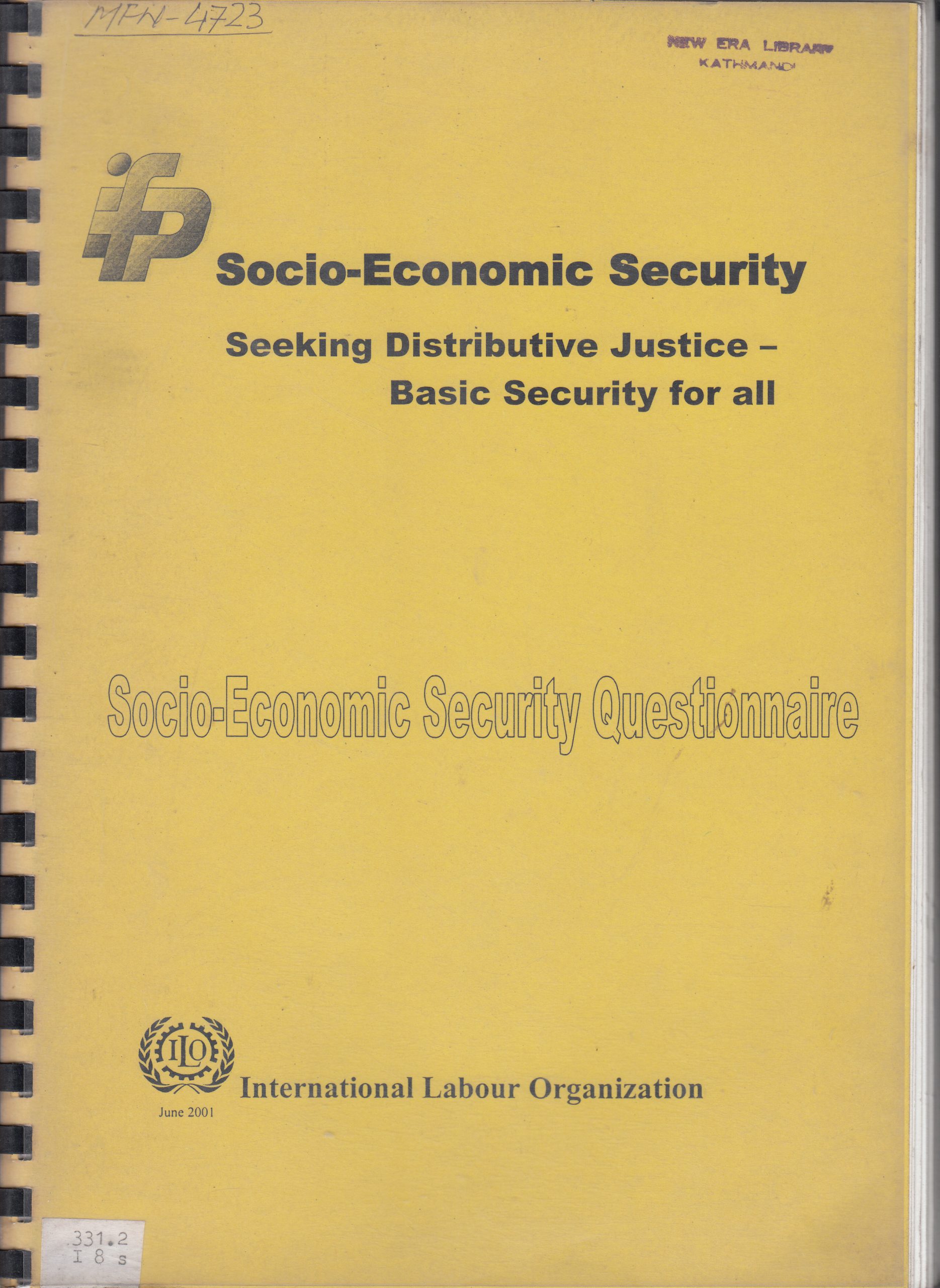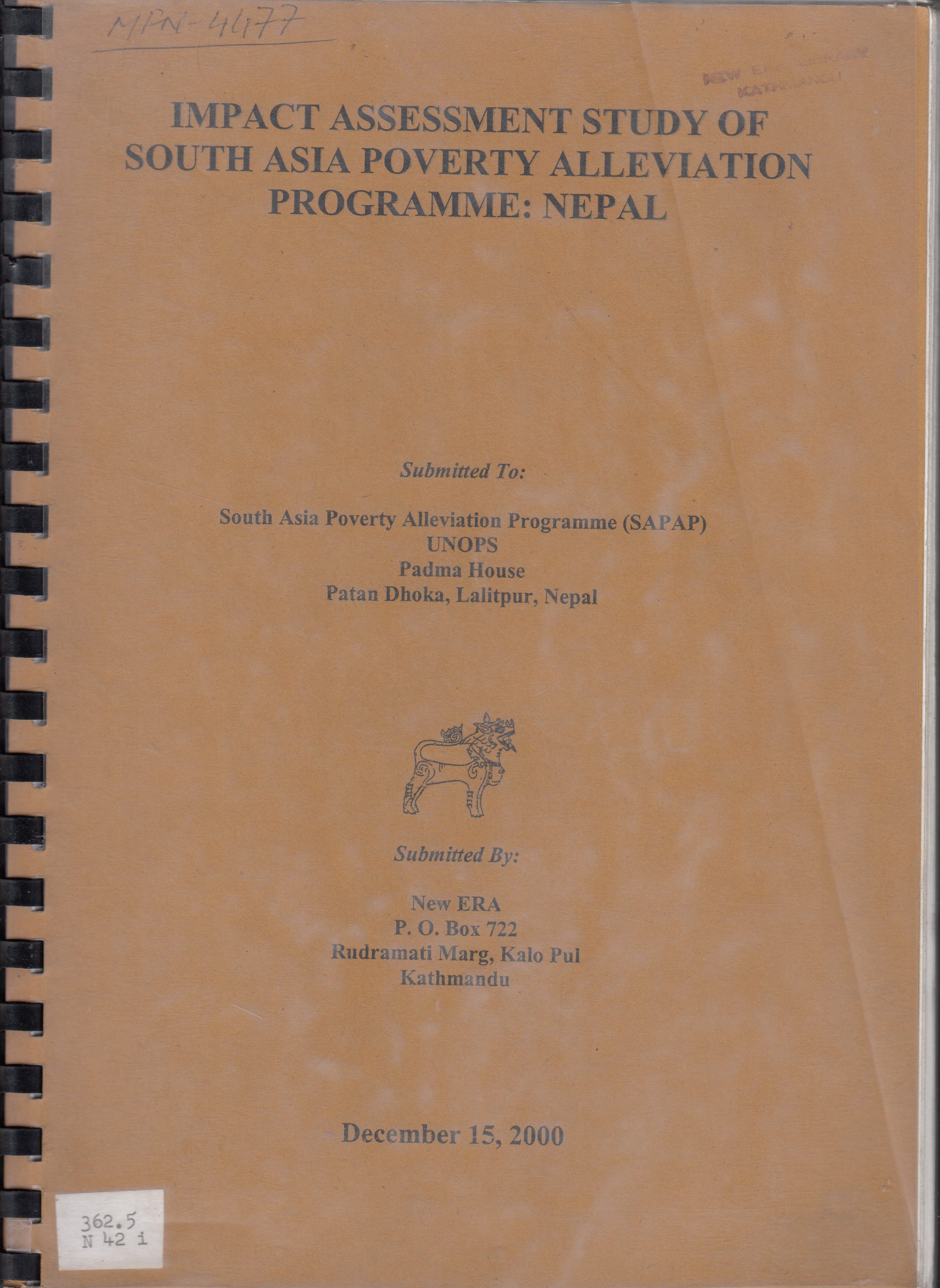Monitoring and evaluation is perhaps one of the least prioritized areas in development context of Nepal in terms of appropriate system development and its effective implementation. This study analyzes the existing information flow and information management in six sample districts and assesses the quality, collection efficiency and the information used in planning for the basic purpose of poverty reduction. It also analyzes the capability of the DDCs and DLAs in data generation and analysis for planning and monitoring purposes with basic focus on poverty monitoring. The study presents a Model Framework for DPMAS with variants, including the institutional framework, input/output monitoring of poverty reduction policies and activities, key poverty outcome and impact indicators and recommends the necessary Management Information System (MIS). It also contains an implementation strategy for the DPMAS.
Report Type: Poverty
Country Poverty Profile Formulation Study
This study reviews all previous studies/data and gives a clear picture of the poverty situation in Nepal in the past and at present. The study also reviews all of the major poverty alleviation programs in the country, identifies the major stakeholders, and assesses the resources spent. The study compiles data regarding the spatial distribution of poverty in terms of ecological belts and development regions
Nepal Report: The Link between Poverty and Environment: Situation Analysis and Strategy for Change
This study identifies the spatial pattern of environmental degradation and poverty in Nepal. The study explores hot
spots for immediate intervention and recommends the most suitable entry-points to reverse the process of
environmental degradation. The study highlights specific examples to prove the hypothesis that poverty has resulted
in the degradation of natural resources and consequently has accelerated its own spread. This study also includes a
comparative assessment of on-going initiatives at different levels in relation to the management and use of natural
resources and poverty alleviation.
Socio-economic Security: Seeking Distributive Justice – Basic Security for All
This study was conducted to complete the template designed by ILO. The template basically deals with the socioeconomic security of labor including issues in relation to the labor market, security, employment security, job security, skill reproduction security, work security, representation security and income security.
Impact Assessment Study of South Asia Poverty Alleviation Program: Nepal
The South Asia Poverty Alleviation Programme (SAPAP) is a UNDP initiated regional intervention in SAARC countries with the objective of integrating social mobilization into the mainstream of development to achieve the economic and human development of the rural poor. This study assesses the impact of the SAPAP at the household and community level and also on local government and local service delivery agents in terms of translating the lessons of social mobilization into policy and action. The study gathered information from in-depth qualitative case studies to record changes in human deprivation with particular reference to gender discrimination.






